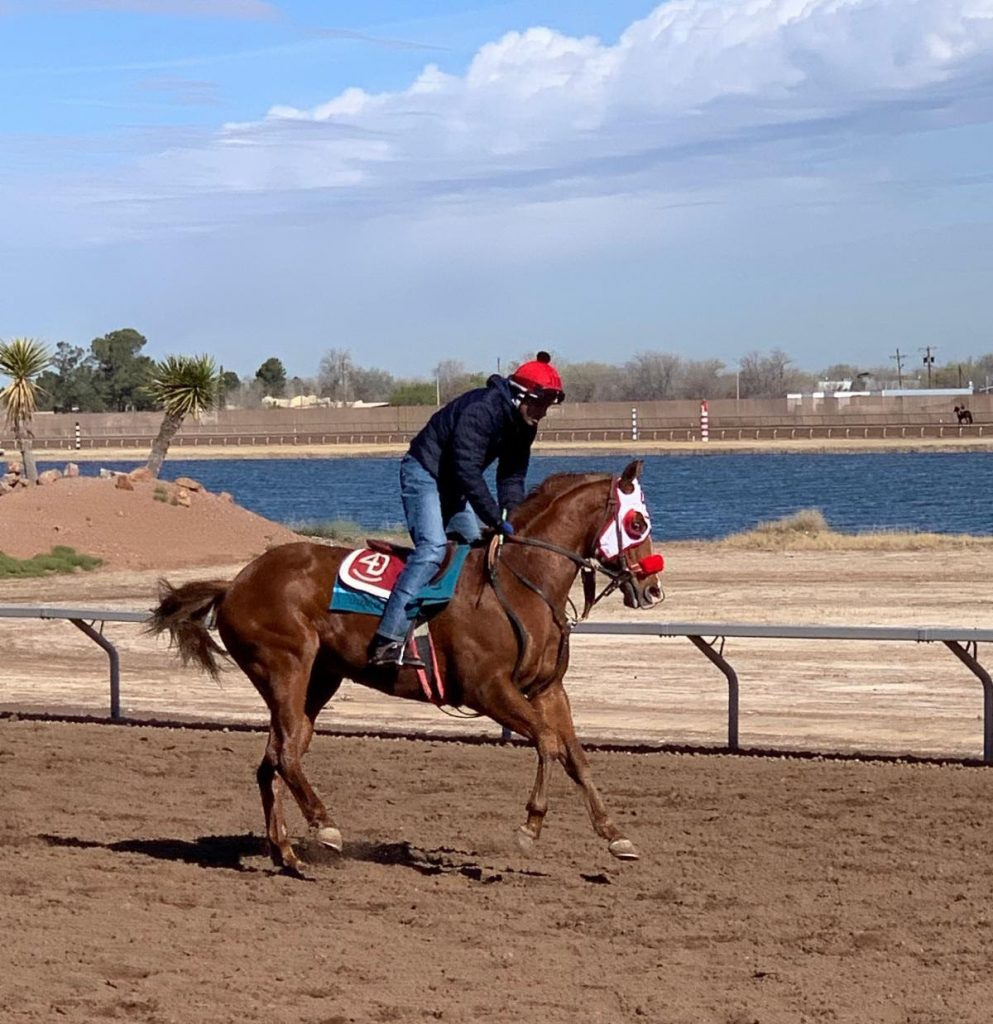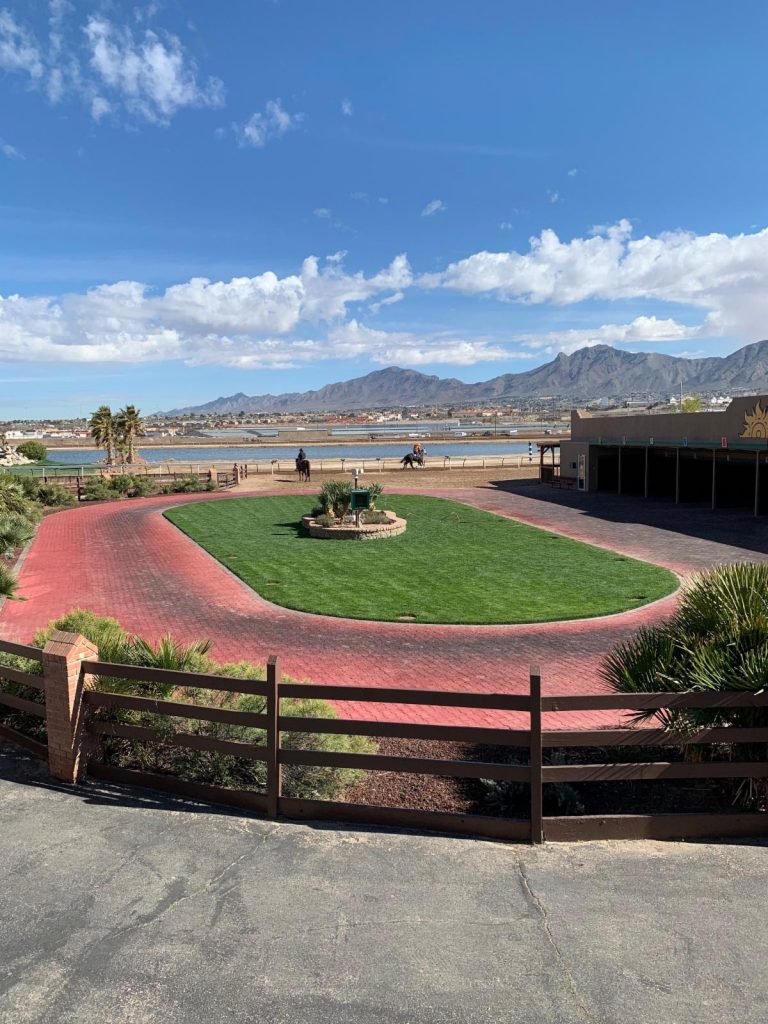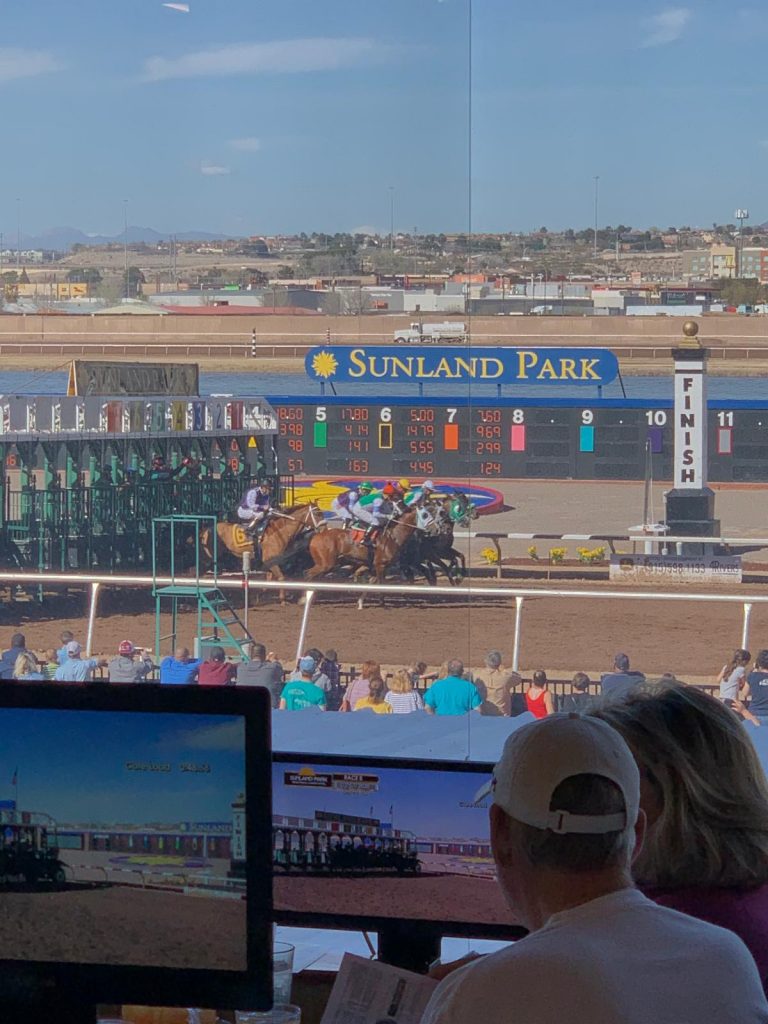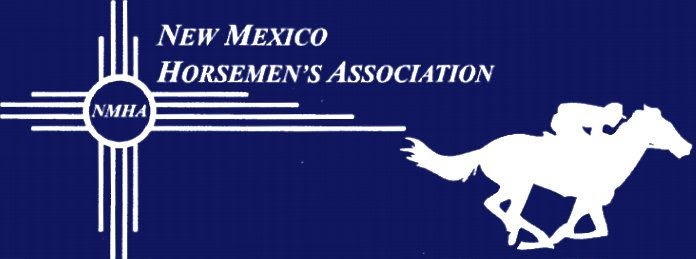
ALBUQUERQUE, N.M. (Friday, May 28, 2021) — The New Mexico Horsemen’s Association has taken additional legal action against the New Mexico Racing Commission after the regulatory body ordered the defunding of the organization that represents about 4,000 Thoroughbred and Quarter Horse owners and trainers in the state.
On May 20, the racing commission with no notice and little discussion ordered tracks to withhold the time-honored 1 percent of purse money that goes to the horsemen’s association for administrative costs, about $400,000 a year. Additionally, the commission ordered a halt to the $5 per-starter fee NMHA member owners pay toward medical expenses for horsemen and their employees, as well as a $2 per-starter fee utilized for legislative advocacy.
The horsemen’s association responded three days later with its second suit in less than six months filed against the commission in the Second Judicial District Court in Bernalillo County. On Dec. 2, the NMHA went to court to ensure that the state’s laws governing the distribution of purse monies are followed.
The NMHA, on behalf of its membership, negotiates contracts with the state’s racetracks regarding simulcasting and is involved in determining racing dates, purse structure, safety measures, stable area facilities, maintenance and more. Most importantly, the NMHA collects, deposits, accounts for, disburses, distributes and audits all purse monies. This involves millions of dollars and they have never lost a penny of that money.

The crux of the conflict is the commission’s insistence that purse money be diverted to help pay for certain racetrack operating expenses instead of its statutory mandate to go to owners who race their horses at the state’s tracks and to assist with horsemen and their employees’ medical costs. Specifically, the horsemen since 2004 have been required to pay half of the racetrack insurance premiums to indemnify the tracks from legal liability and medical costs for jockey and exercise riders. The horsemen’s fear is if the commission gets away with this, the regulators will then use the purse monies for other expenses.
More recently horse owners have been charged a $100-$150 starter fee to cover certain track operation costs, including staffing the starting gate. The amount of money siphoned from purses to the racetracks dating to 2004 totals more than $8.4 million, which the horsemen’s association is asking to be refunded to the purse account.
“I think we’ve been very reasonable in trying to negotiate settlements of litigation, and the commission has refused to negotiate in good faith” said Gary Mitchell, the attorney representing the horsemen’s association. “It’s a matter of people communicating, getting together, but the arrogance of the commissioners stands in the way.”
Instead of opening communication channels, the racing commission after the first suit was filed ordered that the horsemen’s association have no contact with the state agency. That included preventing the horsemen from being represented at the meeting during which the commissioners voted 4-0 to defund the NMHA.

“This is a small state where we all know one another, as lawyers, as horsemen and as track owners,” Mitchell said. “There’s no reason why somebody leading this couldn’t get everybody together and say, ‘We can iron out these problems.’ We do need to figure out some way to insure jockey and exercise riders, outriders and people who work on the tracks, including grooms and such so these people will be safe and have insurance to cover their injuries and work loss. But we have no idea what the tracks are doing. We have no idea what the policies read. We just know that it’s cost us a small fortune in purses, over $8 million.”
Since the late 1990s, New Mexico’s racetracks have benefited from the addition of electronic slot machines, in fact leading to the construction of SunRay Park and Zia Park. Such gaming was approved by the state legislature in order to protect horse racing. That industry provides about $550 million annually to New Mexico’s economic output and more than 8,000 direct jobs, with the pari-mutuel wagering in the state also contributing about $280 million and almost 4,000 jobs, according to a 2017 analysis by the University of New Mexico. Those statistics do not reflect the larger agribusiness and related services created by the needs of horse farms and racing stables.
“We have 4,000 members,” Mitchell said. “By the time you figure out how many families that is, how many people in the State of New Mexico that is, it’s going to be 10,000 to 15,000. Then the employees who work at the tracks and their families, it’s probably 20,000-30,000, maybe more people who really need racing to do well in order to survive. Then there are the people who supply feed and horse supplies, everything from sawdust to grain. Now you’re talking 30,000 to 40,000 people affected and a significant economy in a state of 2 million.”
The NMHA has represented New Mexico horsemen and been the watchdog of the purse account, presently about $42 million a year, since 1966. The organization is audited annually and takes pride in accounting for every penny, accounting so accurate that it has been used by the racing commission for their own audits.
The racing commission’s May 20 edict also ordered tracks to stop sending the money earmarked for the costs of administering the purses to the horsemen’s association. Such action, with no alternative structure in place, strips the existing mechanism that safeguards the tens of millions of dollars a year for which horses compete.
The horsemen’s association is requesting the court stop the commission from shutting down the NMHA’s revenue stream. New Mexico horsemen already were struggling in the wake of the commission reducing or canceling meets amid the pandemic, with no racing staged in the state from late December, 2020 until SunRay Park and Casino opened for the first time in over a year on April 23, 2021.
“The pandemic caused the track owners a lot of problems because they weren’t able to open up their casinos, because they’re short of money,” Mitchell acknowledged. “And yet, the ones who have opened are making money hand over fist. The public has money to spend, they want to spend it, and here we are in this fight that we don’t need to be in. A good mediator and good, well-versed representatives from each party could sit down and settle this mess in I’d say a day’s time.
“The problem is the arrogance of the commissioners. They are so dictatorial and unwilling to pay attention to people who really know racing. The commission has become the problem not the solution. We’ve got to work together and communicate. Because we can kill racing if we don’t.”

The New Mexico Racing Commission is part of the state’s Tourism Department. The commission’s website states its mission as providing “regulation in an equitable manner to New Mexico’s pari-mutuel horse racing industry to protect the interest of wagering patrons and the State of New Mexico in a manner which promotes a climate of economic prosperity for horsemen, horse owners and racetrack management.”
New Mexico Horsemen’s Association Press Release
Photos by Richard Erhard


